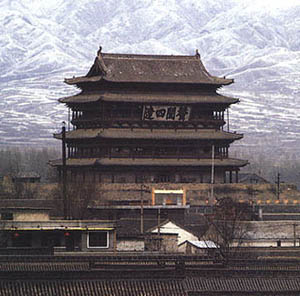| Legole.Com Discover china. Explore the beauty and wonder of the land, people, and culture of China. |
 |
 Country Profile :Shanxi Country Profile :Shanxi |
|
 Shanxi Province got its name due to its location to the west of Taihang Mountain. Shanxi neighbored on Hebei, Henan, Shaanxi and Inner Mongolia & Autonomous Region. It is located to the east of the Yellow River, and is also known as Hedong. Shanxi belonged to Jin State in Spring and Autumn Period, so it is abbreviated in Jin. Shanxi occupies an area of 156,000 square kilometers (about 60,000 square miles) and has a population of over 32 million, including its minority ethnic population. Its capital is Taiyuan City. Shanxi Province got its name due to its location to the west of Taihang Mountain. Shanxi neighbored on Hebei, Henan, Shaanxi and Inner Mongolia & Autonomous Region. It is located to the east of the Yellow River, and is also known as Hedong. Shanxi belonged to Jin State in Spring and Autumn Period, so it is abbreviated in Jin. Shanxi occupies an area of 156,000 square kilometers (about 60,000 square miles) and has a population of over 32 million, including its minority ethnic population. Its capital is Taiyuan City.
When to go
Being at a high altitude, Shanxi Province has a cold and dry climate and has an annual rainfall of between 400-600 millimeters. The province is also frequently plagued by sandstorms, especially in the spring, so it is often useful to bring along both sunglasses and a hat when visiting. Generally speaking, the province's climate is the best between May and October.
History
Shanxi is one of the birth places of Chinese civilizations with a long history and traditional culture. As early as one hundred million years ago, the ancestors of the Chinese lived and propagated in this region. Legend tells us that the Yellow Emperor, founder of the Chinese nation, once lived in Shanxi for a certain period. Today, many Neolithic sites from that period can still be seen dotted across the vast expanse of the province.
What to see
Shanxi is endowed with an abundance of cultural sites from its long history. Most of the ancient structures were built before the Liao and Song Dynasties. So it is the reason why Shanxi is often called the "Chinese Ancient Architecture Museum". The more obvious of these include: the Buddhist wonder of the Yungang Grottoes in Datong City, the ancient city of Pingyao which was listed as a World Cultural Heritage site by UNESCO in 1997, the oldest and tallest ancient wooden pagoda in China, the Wooden Pagoda of Yingxian County and the remote Shuanglin and Jinci Temples, which are well worth the long journeys for the visitors.
Of course, there are a number of natural magnificent and beautiful places that can also be seen in Shanxi. The most famous of them include Wutai Mountain with the longest and most prestigious history in the four most well-known Buddhist holy lands of China, the whistling rage of the Yellow River's Kettle Spout waterfalls (Hukou Waterfalls) and one of the Five Sacred Mountains in China - Mt Hengshan. |
 |
|
|
 |
|
